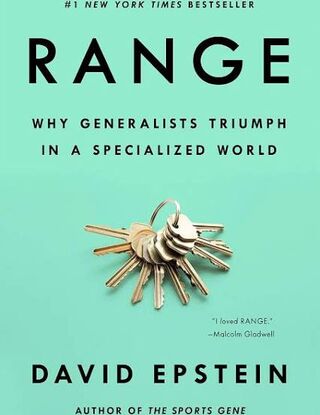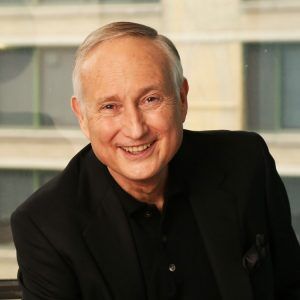Education
The Success Equation for Our "Wicked" World
The specialist versus the generalist
Posted October 15, 2020 Reviewed by Hara Estroff Marano
The job market, the world, and the nature of transformational learning and living are entwined and complicated. In his book Range, author David Epstein starkly contrasts the professional development strategies of sports legends Tiger Woods and Roger Federer.

Epstein argues that Woods, who began his lifelong hyperspecialization in professional golf by swinging his nine iron while still a toddler, is the methodological opposite to tennis icon Roger Federer. Federer experimented with diverse sports like skiing, wrestling, swimming, skateboarding, basketball, badminton— and tennis.
Federer’s ultimate hyperfocus on tennis evolved through diverse exposure that narrowed over time, and he gravitated by “natural selection” to tennis, to transform into one the greatest players of all time. Federer’s path to preeminence was the “scenic route” while Woods’ took the more direct expressway (Epstein, 2019).
Is one route better?
Tiger Woods: Woods was guided by his father, who precisely analyzed each golf swing as a component part of an area of specialization. He directed his son through the lifelong, ten-thousand-hours rule that promotes practice, practice, practice as the pathway to success. Epstein opines that early specialization is crucial to many professionals, including surgeons, musicians, and athletes. Clearly, an argument can be made that the hyperspecialized “Tiger’s way” can lead to extraordinary success (Luskin, 2020).
Roger Federer: Alternatively, “Roger’s way” involved meandering exploration and experimentation in his early days. Epstein specifically differentiates the intrinsic nature of the two sports. Golf, claims Epstein, is more specific and narrowly skilled than tennis. It is less physically dynamic, with a narrower set of hyperspecific habit patterns. Therefore, extensive, repetitive practice accommodates golf more than tennis and some other sports. Specialists flourish in pattern-specific, prescriptive learning environments, where the same patterns recur and feedback is quick, repetitive, and precise.
Humans derive meaning from patterns. By contrast, generalists flourish in more diverse, less predictable—“wicked”—learning environments, in which patterns may be harder to discern, argues Epstein.
Additionally, researchers at MIT and the U.S. Census Bureau have shown that among the fastest-growing U.S. startups, the founders’ average age was 45 at launch. The researchers conclude that age signifies that more generalized developmental evolution occurred before the founders became more specialized and achieved marked success. That tends to make them older than learners whose talents are honed toward specific success from an early age, like child musicians or prodigies (Haden, 2018).

Epstein reports that in 2009, researchers tried to answer the question: Do specialists get better with experience, or not? The researchers examined what they called "wicked domains," where the rules of the game are often unclear and underlying patterns are not always obvious or predictable, as in tennis. He asserts that later-blooming generalists demonstrate superior decision-making in circumstances where there are myriad unclear underlying patterns.
Epstein’s argument is supported in Fareed Zakaria’s book In Defense of a Liberal Education, which observes that liberal education is under attack through a lack of funding and support. Zakaria explains why a liberal studies education is frequently central to the development of critical creativity and thinking skills. According to Epstein, such skills empower an individual to deal with “wicked” situations (Zakaria, 2015).
In 1997, an IBM supercomputer beat chess champion Gary Kasparov by evaluating 200 million possible moves a second. Humans seemed to be unable to compete successfully in that board game, and computers temporarily prevailed. But Kasparov did not let it go. He reflected on his loss and what AI scholars call Moravec’s paradox (Moravec, 1990). People are frequently fooled by expertise, such as that of the computer. In short, computers can think computationally and they can learn, but they are ultimately computational and humans like Kasparov can think about thinking. Kasparov ultimately prevailed.
What does this all mean? Is it better to be a generalist or a specialist? Should you strive for breadth or depth in your career and in your life? An old adage cruelly asserts that the trade-off between breadth and depth makes one a “Jack-of-all-trades, master of none.” The current thinking in pop psychology agrees. But why not, “Jack-of-all-trades, master of many?”

To examine these arguments, I interviewed a transformational learning leader and executive coach, Dr. Bob Wright, founder and CEO of Wright Graduate University for the Realization of Human Potential.
Conclusions: The following are my conclusions after analyzing the insights from both Wright and Epstein, tempered by my own long experience as a learning psychologist, therapist, teacher, career, and life coach (Luskin, 2019):
1. Transformational teaching and learning can lead to a successful outcome applying either approach, depending on the specific field. Some fields benefit greatly from an early start and intense lifetime practice, such as golf, violin, and ballet. Other fields, such as entrepreneurial initiatives or inventions, benefit from multispecialty, and broader practice experiences. This conclusion is based on factoring in the age and diverse pathways of large numbers of successful entrepreneurs. The generalist—the more diverse multi-specialist—dominates as an entrepreneur or inventor.
2. Learning comes from a combination of thinking about the task or challenge and extensive perfect practice. Only perfect practice works. If you practice imperfectly, you undermine effectiveness; through repetition, your brain forms engram patterns that make changing practiced bad habits extremely difficult.
3. Positive psychology,—having a positive outlook—plays a key role in sustaining the intense, long-term practice required in various areas of human development.
4. Cognitive-behavioral outcomes are developed through repetition. The human dimension includes an X factor that is beyond the scope of computers—the ability to think about thinking..
5. Focus, attention, and learning how to learn are essential characteristics of long-term success in every field.
Wright offered two distinct reasons for concluding that the generalist has an edge over the specialist: (1) Generalists are better at navigating “wicked,” unanticipated learning environments, and (2) generalists ultimately develop more ability to integrate all that they have learned (J. Wright, 2013).
The Success Equation:
Talent + Perfect Practice + Positive Outlook + Recognizing Opportunity+ Luck = Success.
Those who are endowed with intellect and talent may find it easier to excel in multiple domains. They are renaissance men and women. Successful generalists like Leonardo da Vinci, Nostradamus, and Elon Musk are outstanding examples of the decathletes of life (Holt, 2018).
Hard work, perfect practice, luck, opportunity, and belief make a great deal of difference. “It takes all kinds,” but in our world, the generalist able to dealwell with “wicked" situations can achieve substantially.
I began this article saying that the job market, the world, and the nature of transformational learning and living are entwined. COVID-19 may turn out to be only one of many surprise pandemics ahead. The world is becoming more “wicked.” Epstein, Wright, and I all conclude that the highly developed generalist is best prepared to prevail in unpredictable situations. Those with diverse talent and accomplishments will be increasingly important as we grapple with destiny in navigating a balance between science and economics to succeed in our increasingly “wicked" world.
Luskin Learning Psychology Series No. 54
Special thanks: Toni Luskin, Ph.D., for editing and publishing support. Robert Wright, Ed.D., CEO, Wright Graduate University for the Realization of Human Potential, for an interview and insight.
References
Epstein, D. (2019). Range: Why Generalists Triumph in a Specialized World (Vol. 1). New York City: Riverhead Books.
Haden, J. (2018). A Study of 2.7 Million Start ups Found the Ideal Age to Start a Business. INC. Retrieved from Inc.com website: inc.com/jeff.hagen/a-study-of-27-million-startups-found-the-ideal-age-to-start-a-business-
Holt, J. (2018). When Eienstein Walked with Godel: Excursions to the Edge of Thought (1 ed. Vol. 1). New York: Farrar, Straus & Giroux.
Luskin, B.J. (2019). Synesthesia, Semiotics, Semantics and How We Learn. [Media Psychology]. Psychology Today, 46(Luskin Learning Psychology).
Luskin, B.J. (2020). The Neuropsychology of Media and Learning Psychology Explained. [Education, Psychology, Neuropsychology, learning]. Psychology Today(June 29, 2020).
Moravec, H. (1990). Mind Children: The Future of Robot and Human Intelligence (2 ed.). Boston: Harvard University Press.
Wright, J.. (2013). Evolating, Living a Great Life (1 ed. Vol. 1). Chicago: The Wright Foundation.
Zakaria, F.. (2015). In Defense of a Liberal Education (1 ed. Vol. 1). New York City: W.W. Norton & Company.




